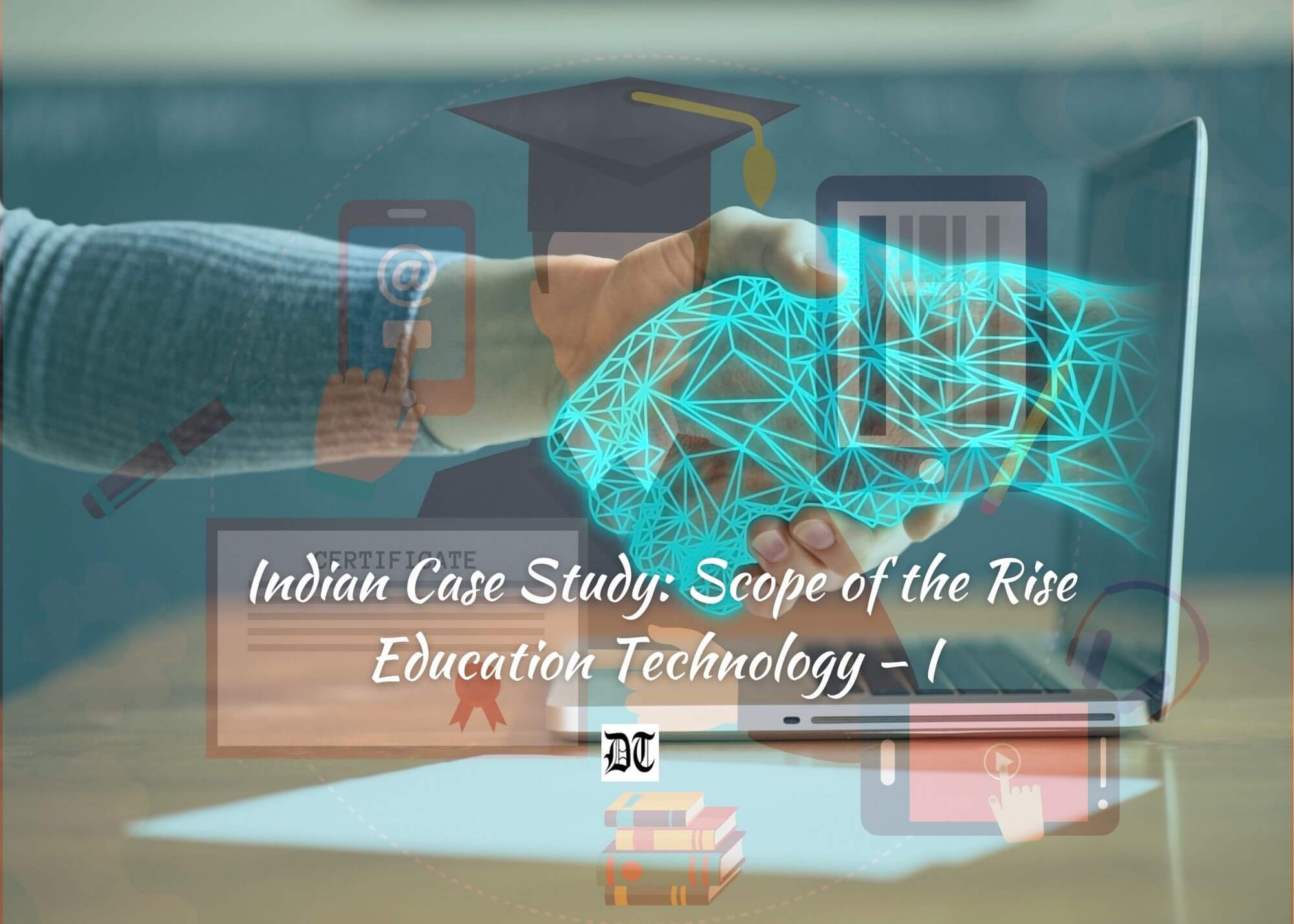Meera explores the scope of the rise in education technology in India, in the first part of the two-part study. An exclusive for Different Truths.
Our basic aim is to analyse the reasons for the phenomenal rise of the Edu tech sector with special reference to Indian start-ups, which are quite prominent in this space – BYJU’S, TOPPR, UPGRAD, and VEDANTU.
The government’s decisions with respect to the online mode of education.
· The reasons for them reaching unicorn status with respect to funding by Venture Capitalists.
· The government’s decisions with respect to the online mode of education.
· Change in parents mind set with respect to traditional ways of teaching.
· Moving towards a market system with education being the product and the consumer in this case being the student and his or her parents being the king.
Rise of Edu-Tech
The rise of educational technology is a part of a larger shift in the thought process of the government. It is now allowing the free-market principles to function, as well as responding to increasing costs of higher education.
One view is that technology can solve these challenges, which believes that education is a product.
One view is that technology can solve these challenges, which believes that education is a product. It can be packaged, automated, and delivered to students. For this to become a reality, a cooperative effort between ed-tech developers, and the academic community is required. This would lead to a deeper understanding of how teaching and learning occur.
Educational technology (ed-tech), represents efforts to design, develop and use technology to achieve a never-ending range of educational outcomes. It includes improved learning, increasing retention rates, enhancing teaching effectiveness, reducing expenses, and increasing access.
Ed-tech proponents have always assumed positive impacts, promoting an optimistic view.
Ed-tech proponents have always assumed positive impacts, promoting an optimistic view. This is basically a response or an answer to the following thought process:
1) Increasing price of Higher Education
2) Shift in political thought process of the Government, moving towards a free market system (allowing the market process to find its level of equilibrium) within the education sector.
3) Education is a product to be packaged, automated and to be delivered.
4) Technocentric belief that technology is the only solution to the problems that face the education space.
Explore Reasons
We will explore the above stated reasons as some of the factors behind the explosiveness of the ed-tech space in India, the phenomenal rise in the fortunes of home grown ed- tech giants like BYJUS, TOPPR, VEDANTU, UPGRAD, to name a few, and to study their path to success. Was this aided by the internet-boom, governments thrust towards digitalization, allowing access of the education sector to private players, advent of cheap smartphones, and the Pandemic?
Note: Tanisha Arya studying in class11, DPS R.K.Puram, assisted me in the research of this article.
Visuals by Different Truths





 By
By

 By
By